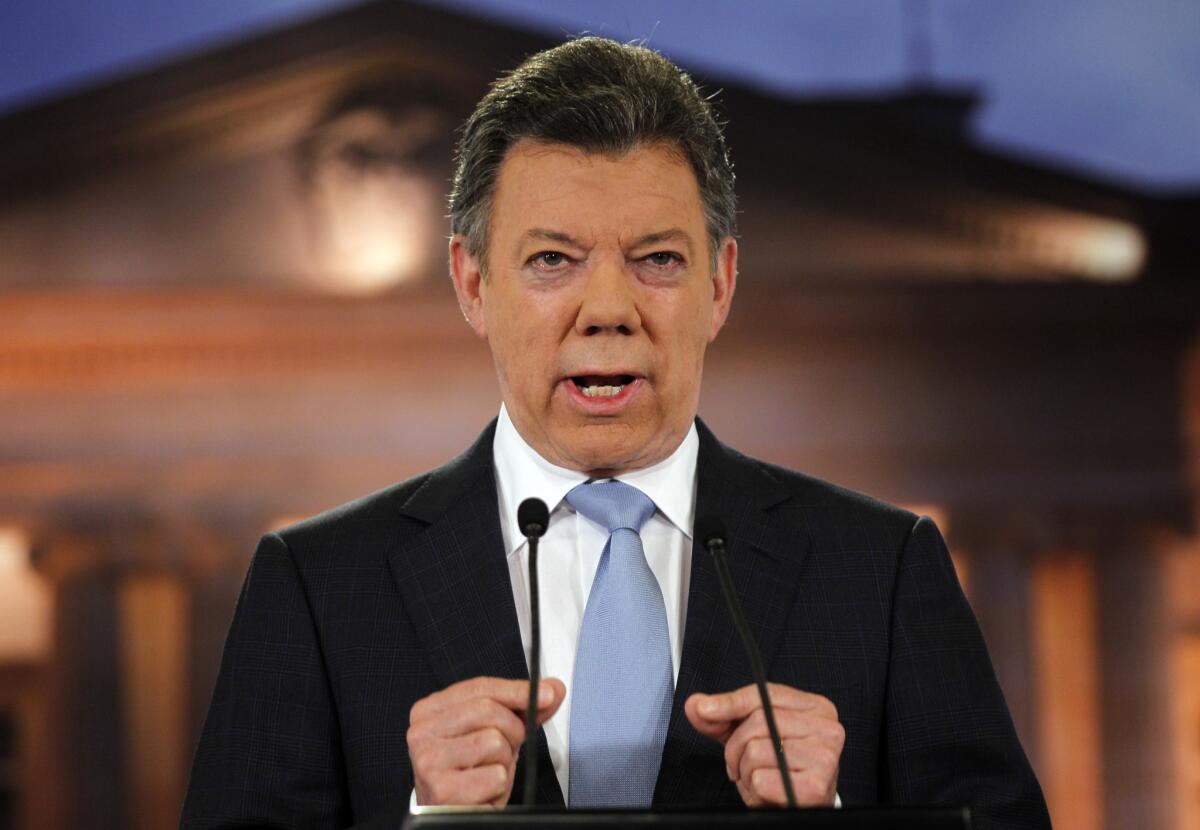For Colombia and FARC, a way forward

- Share via
President Juan Manuel Santos’ decision last year to restart peace talks with the Revolutionary Armed Forces of Colombia was understandably met with skepticism. After all, three similar efforts over three decades failed to bring an end to the violence that has claimed hundreds of thousands of lives and displaced some 3 million people in the region’s longest-running internal conflict.
But this time there is reason for hope. Earlier this week, the Santos administration and the rebel group, known as FARC, announced that they had reached a landmark agreement on agrarian reform. Under the agreement, the government would conduct a survey of all lands in the country and issue land titles. A land fund would be created that would include underused or homesteaded parcels, which would be redistributed to landless peasants and people who have been displaced. The government would also establish a development fund that would provide a wide range of assistance, from credit to paving roads to building schools in remote areas.
Unequal distribution of land and lack of development are two of the issues that ignited the FARC insurrection in 1964 and that have continued to fuel violence in the countryside. The United Nations Development Program has estimated that 1.5% of Colombia’s population owns more than 50% of the country’s land.
Critics, including former President Alvaro Uribe, are already taking aim at the agreement; Uribe tweeted that the FARC isn’t sincere in pursuing a real or lasting peace. But such arguments fail to recognize that Colombia’s military can’t shoot its way out of the conflict. It has tried and failed for 50 years. Colombia must seize this rare opportunity to move forward, the result of recent military victories that have weakened the Marxist rebel group and motivated it to seek peace, even though it remains capable of inflicting serious damage.
Santos is on the right path, but there is still much to be hammered out, including how to demobilize and disarm the former guerrillas. Colombia will need political and financial support from the United States and other countries if an accord is signed. The Obama administration has expressed its support for the process, and should continue to stand by its ally as the talks continue next month.
More to Read
A cure for the common opinion
Get thought-provoking perspectives with our weekly newsletter.
You may occasionally receive promotional content from the Los Angeles Times.









